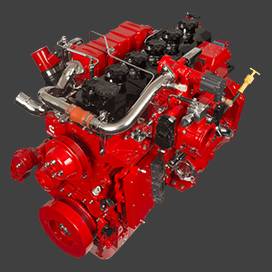Aug . 16, 2024 21:48 Back to list
Understanding the Transition from Brake Drums to Rotors in Automotive Applications
Understanding Brake Drum to Rotor Conversion
The choice between brake drums and rotors is a crucial aspect of vehicle braking systems that impacts performance, maintenance, and safety. While traditional drum brakes have served reliably for decades, the modern trend has shifted towards disk brakes (rotors) due to their superior performance characteristics. This article explores the conversion from brake drums to rotors, the benefits of such a transition, and considerations to keep in mind.
Brake Drums vs. Brake Rotors An Overview
Brake drums operate on a simple principle when the brake pedal is pressed, brake shoes are pushed against the inner surface of the drum, creating friction that slows down the vehicle. While effective, drum brakes can suffer from issues such as heat buildup, reduced performance in wet conditions, and less responsive feel under hard braking.
On the other hand, brake rotors—part of disc brake systems—offer significant advantages. Disc brakes use brake pads that clamp onto the rotor, allowing for more efficient heat dissipation and improved braking force. This results in enhanced stopping power, consistency in performance, and less likelihood of brake fade.
Benefits of Converting from Drums to Rotors
1. Improved Performance One of the primary reasons to convert from drum brakes to disc brakes is the noticeable improvement in braking performance. Disc brakes provide better modulation and quicker response times, which can enhance overall driving safety.
2. Heat Dissipation Since disc brakes are more effective at dissipating heat than drum brakes, they maintain optimal performance over longer periods. This efficiency significantly reduces the risk of brake fade, particularly during heavy or repeated braking—a common scenario in mountainous terrains or during high-speed driving.
3. Maintenance and Longevity While all braking systems require maintenance, disc brakes are generally easier to service. Brake pads are more accessible than drum brakes, which can be cumbersome to disassemble. Furthermore, disc brakes tend to have a longer lifespan, which can make the investment in conversion worthwhile.
brake drum to rotor conversion

4. Enhanced Aesthetics Many vehicle enthusiasts prefer the look of slotted or cross-drilled rotors over traditional drums. This can be particularly appealing for those looking to enhance their vehicle's appearance or participate in auto shows.
Challenges and Considerations in Conversion
While converting from brake drums to rotors has numerous benefits, it is not without challenges. Here are some critical points to consider
- Cost The conversion process can be costly. New rotors, calipers, brake pads, and associated hardware can add up. Additionally, labor costs can escalate if professional installation is required.
- Vehicle Compatibility Not all vehicles are designed to accommodate disc brakes. Modifying a vehicle’s braking system may require custom brackets, an upgraded master cylinder, or modifications to the wheel assembly.
- Regulatory Compliance Depending on the region or country, converting a brake system might require specific inspections or approvals, particularly if the vehicle is registered for road use.
Conclusion
Converting from brake drums to rotors can significantly enhance a vehicle's braking performance and safety. While the benefits are clear—improved heat dissipation, enhanced braking response, and easier maintenance—potential converters must consider the associated costs, vehicle compatibility, and regulatory factors. If performed correctly, this conversion can lead to better driving experiences and increased confidence on the road. As automotive technology continues to evolve, ensuring that your braking system keeps pace with these advancements is vital for both performance and safety.
-
Brake Drum Man - High-Quality Drum Brake Drums & Brake Shoes for Reliable Performance
NewsJun.24,2025
-
High-Quality Brake Drum Kamaz – Durable Drum Brake Drum & Brake Shoe Replacement
NewsJun.10,2025
-
High-Quality Brake Drum Liza for Drum Brake Systems - Superior Durability and Performance
NewsJun.10,2025
-
High-Quality Brake Drum Kamaz – Durable Drum Brake Drum & Brake Shoe Solutions
NewsJun.10,2025
-
Durable Kamaz Brake Drums High-Performance Truck Parts
NewsJun.09,2025
-
Premium Brake Drum Maz Kit with Shoes Enhanced Braking
NewsJun.09,2025
